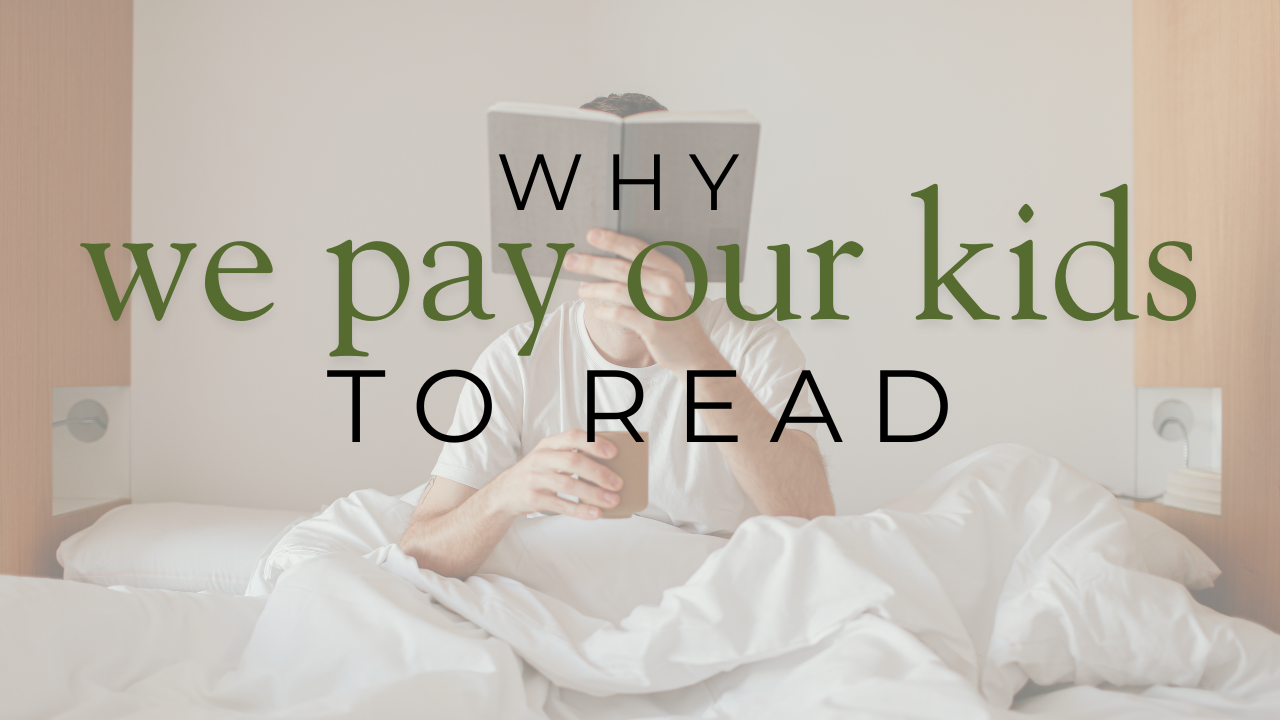Why We Pay Our Kids to Read
Sep 04, 2025
When people hear that we pay our kids to read, the first question is usually: why?
Honestly, the credit goes to my husband. He’s an avid reader, and early on we both realized something powerful: many of our mentors came not from people we personally knew, but from books we read. Business, faith, history, mindset—so much of what shaped us was found in the pages of books. We wanted to give our kids the same gift: a love for reading, and the discipline of building that muscle early.
The “Rules” of Reading in Our Home
Yes, we do have some guidelines! To qualify for payment, our kids must:
- Finish the book. Halfway doesn’t count.
- Complete a one-page summary. We use a simple Google Doc. The summary has to cover key takeaways, what stood out to them, and how they might apply it.
Some of our kids stick right to one page. Others, especially our daughters, can’t help but pour out three or five pages when a book really hits home. Either way, it’s about comprehension and reflection, not just checking a box.
That Google sheet system was a total game-changer once our three older kids (plus the occasional boyfriend or girlfriend) started taking advantage of the program. It was getting impossible to track who finished what and whether we’d paid them. Now, everything is organized in one place.
Physical Books or Audiobooks?
We allow both. Our family library is stocked with physical books, but we also keep curated lists on Audible. Each of our kids has their own preference:
- Our son almost exclusively listens to audiobooks.
- Our middle daughter loves physical books because she can highlight, tag, and stick index tabs everywhere.
- Our oldest daughter mixes both.
We don’t make a hard rule here. What matters is that they’re engaging with great content, whether that’s by listening or flipping through pages. You might feel strongly one way or another, and that’s great!
One fun discovery? Audiobooks allow them to “double earn.” For example, while cleaning one of our Airbnbs or doing yard work, they’ll pop in their earbuds and listen to a book. They’re getting paid for the job and for finishing a book—what they call “compounding their money.” It’s a mindset shift we’re glad to see.
Shaping More Than Readers
So is the goal just to get them reading? Not at all.
Yes, we want to build a love of reading, but even more importantly, we want to shape their values, mindset, and worldview. Books have the power to stretch perspectives, expose them to new ideas, and encourage critical thinking.
That’s not to say every book we assign perfectly matches our own beliefs. That’s intentional. For example, Robert Kiyosaki’s Rich Dad Poor Dad has sparked some great discussions in our home. His views on debt and leveraging other people’s money don’t fully align with ours, but that opens the door for conversations: Here’s what he believes. Here’s what we practice. Why do you think that difference matters?
Those moments are invaluable. Our kids are learning not just to absorb information, but to evaluate it, weigh different perspectives, and form their own conclusions.
The Bigger Picture
At the end of the day, paying our kids to read isn’t just about finishing books. It’s about cultivating curiosity, discipline, and wisdom. It’s about exposing them to mentors, mindsets, and histories that will shape their futures.
We don’t see it as bribing them to read—we see it as investing in their growth. Would you consider implementing a famiy reading program?

